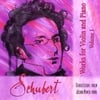This is a follow-up to my post about a recent chamber music event I performed on Sunday, July 22 in Dayton, Ohio. This first post generated at least a little buzz in the music blogosphere (see Jason Heath’s comments on this post and my response, and Chris Foley linked to me), so I figured I should write a little bit about the post-performance scene.
Sheridan Kamberger Currie (principal violist of the Dayton Philharmonic Orchestra), John Kurokawa (principal clarinet, DPO), and myself (as newly instituted principal keyboardist of the DPO) performed a well-rounded program of varied chamber music in a private home for a crowd of about twenty-five donors, board members, and other patrons and staff of the DPO. Executive director Curt Long and music director Neal Gittleman were on hand to give brief talks before the performance, which certainly lent the occasion some higher significance. (In fact, Neal graciously turned pages for me during the performance. No pressure there!)
The performance went very well. John spoke eloquently and instructively about most of the pieces on the program, and I talked a little bit about my piano solo. This is another skill that classical musicians of the twenty-first century need to cultivate: public speaking in front of audiences. Communication skills are becoming increasingly important in this business, and young musicians today avoid honing theirs at their peril.
After the performance, we musicians mingled with the guests over drinks and hors d’oeuvres. Here are paraphrases of some of the things I heard attendees say:
-We can’t wait to have another event like this. This should happen more often.
-I prefer this kind of private performance to seeing the full orchestra. (I heard this more than once.)
-It is incredible to see up close how musicians interact with one another during a performance to keep the music flowing and accurately timed.
-Can you show me that part in the music where (insert dramatic playing technique, such as tone clusters on the piano) happens?
-Welcome to the DPO family! We’re happy to have someone like you here.
-Where are you from? Where did you go to school? When did you begin your music study? What other roles do you play in your career as a musician besides being a DPO member?
-We really enjoyed hearing something different by (insert composer name). I think I’ll look into getting some more CD’s of that particular composer.
-It’s great that this event introduces you to people who enjoy funding the arts. It creates possibilities and connections. How do you feel about this kind of interaction?
Though these are paraphrases wrought from my own inevitably biased memory, I hope that the reader is getting a sense of how involved these people were in the music-making they witnessed and the curiosity, gratitude, and support they were expressing to the musicians. I certainly hope to participate in (or even help organize) more exchanges like this, and it would be useful for other artists and administrators to take note of what good can come from smaller-audience, socially interactive performance events. It's also just plain fun.
Wednesday, July 25, 2007
Informal Chamber Recitals: After Effects
Subscribe to:
Post Comments (Atom)








2 comments:
Hi Josh . . . I ran across your post and thought I'd add a couple of comments. I thought this performance was a very nice event both musically and from a donor/ticket buyer/friend cultivation point of view. I'm glad to see that you were pleased as well.
I think you're right on in your list of reasons why this type of performance is important today. I also find that the high quality of performance inevitably helps to reinforce in current and potential donors' minds the idea that they are supporting a winner, which in the long run is much more effective than a "help us, we're desperate" message.
Curt Long
Thanks so much, Curt, for your supportive comment! I really did enjoy the event and completely agree that it's much more healthy to present some kind of good quality performance for our supporters as an antidote to the "needy" pitch.
Post a Comment